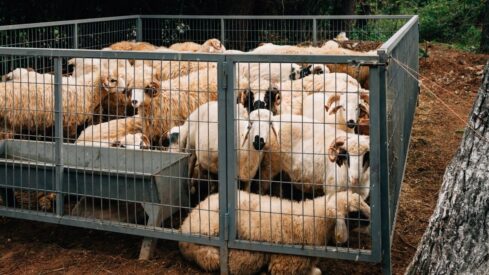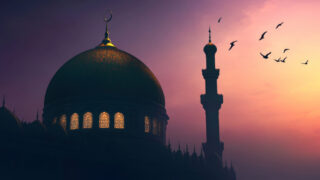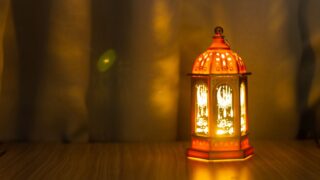- It is mustahabb or preferable for one who has made a sacrifice not to eat anything on that day before he eats from it, if this is possible, because of the Hadith, “Let every man eat from his sacrifice.” (Sahih Al-Jami, 5349). This eating should be after the Eid Prayer and khutbah (sermon). This is the opinion of the scholars, including Ali, Ibn Abbas, Malik, Ash-Shafi`i and others. The evidence for this is the Hadith of Buraydah (may Allah be pleased with him): “The Prophet (peace and blessing be upon him) would not go out on the Day of Fitr until he had eaten, and he would not eat on the day of Adha until he had slaughtered (his sacrifice).”
- It is better for a person to slaughter the sacrifice himself, but if he does not, it is mustahabb for him to be present when it is slaughtered.
- It is mustahabb to divide the meat into three: one third for consumption, one third to be given as gifts and one third to be given in charity. This was the opinion of Ibn Masud and Ibn Umar (may Allah be pleased with them). The scholars agreed that it is not permissible to sell anything from its meat, fat or skin. The Prophet (peace and blessing be upon him) is reported to have said: “Whoever sells the skin of his udhiyah, there is no udhiyah for him (i.e., it is not counted as Udhiyah).” (Sahih Al-Jami, 6118). The butcher should not be given anything of it by way of reward or payment, because Ali (may Allah be pleased with him) said: “The Messenger of Allah (peace and blessings be upon him) commanded me to take care of the sacrifice and to give its meat, skin and raiment (covering used for protection) in charity, and not to give anything of it to the butcher as a compensation. He said, ‘We will give him something from what we have.’” (Al-Bukhari and Muslim). It was said that it is permissible to give the butcher something as a gift, and that it is permissible to give some of it to a non-Muslim if he is poor or a relative or a neighbor, or in order to open his heart to Islam.
What Should Be Done With the Sacrifice?

Did you like this content?
All articles published not necessarily the official points of view held by islamonline
Recommended

The Prophet’s Life in Brief

The prophetic approach to strengthening self-confidence

The Purpose of Life in Light of the Qur’an

A Miraculous Aspect of the Qur’an: How the Qur’an Transforms Lives

The Rights of Non-Muslims in Society: A Reading of Al-Qaradawi Thought

“A Journey to Islam: Finding Balance and Purpose”

Close Relation Between Faith and Hope

Revelation: Proof & Guidance

Prophet Muhammad: The Best Maker of Men

God’s Final Revelation: The Story of the Quran
Top Reading







